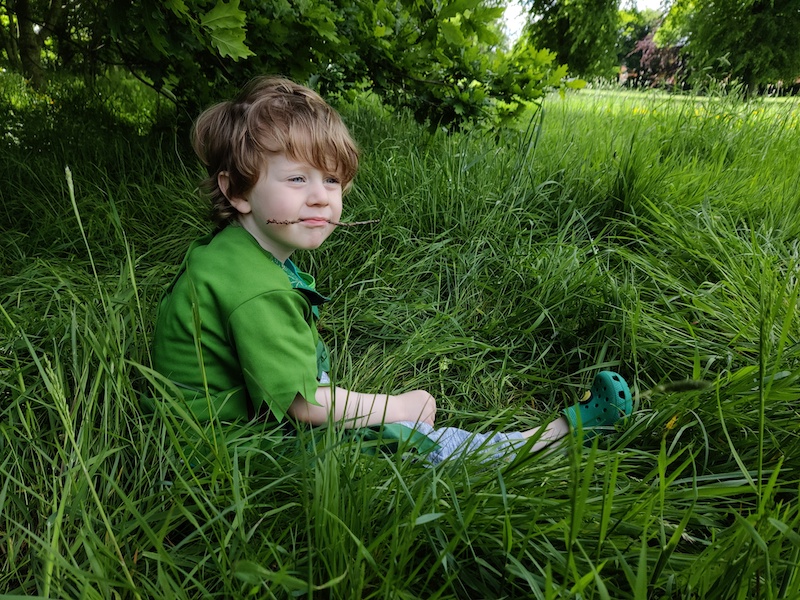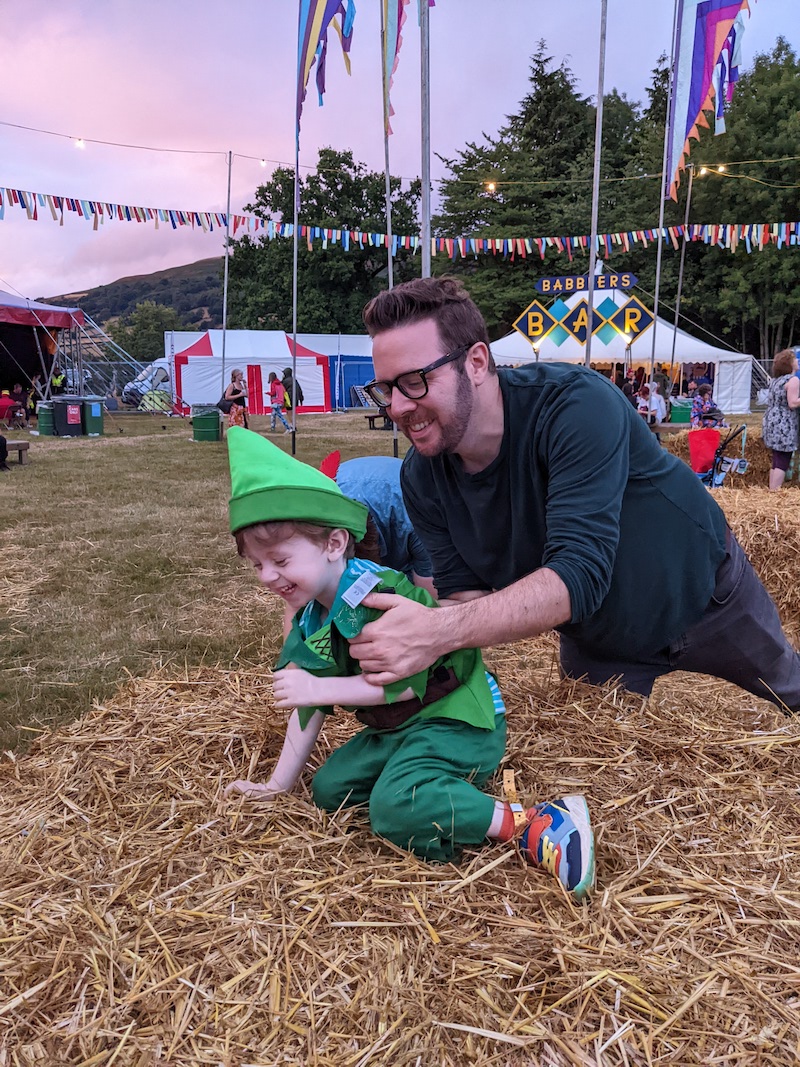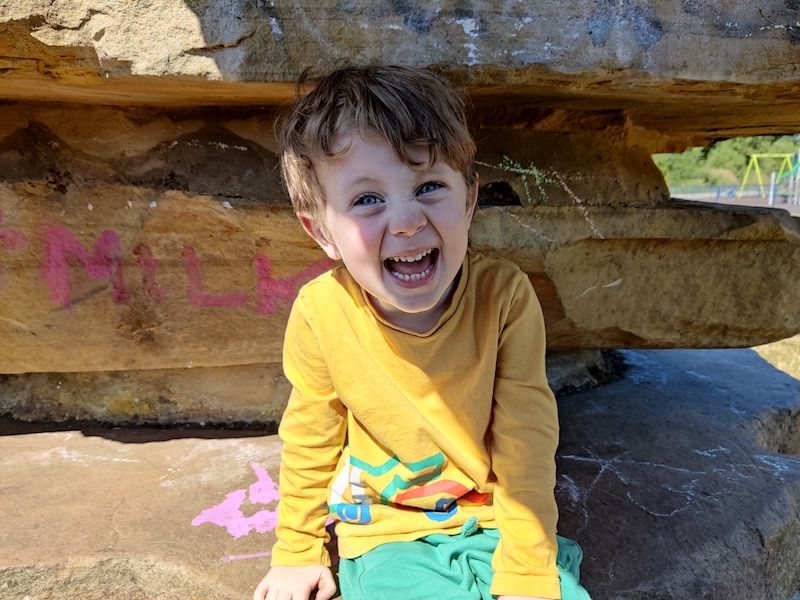Talking with Toddlers
In retrospect, the point where you’re able to hold a full conversation with your child is a massive red herring. Ted has a great vocabulary and can run off long, complex sentences confidently (and loudly). This can often fool me into thinking that a three and a half year old is actually a rational, logical being.
It’s hard reacting to this. You can have a detailed discussion about the origins of Spider-Man (a topic/character that I have deliberately avoided introducing to Ted, but he’s still somehow aware of via the cultural obligation of the Marvel franchise) – but your child will still roll around on the floor flailing his fists and crying “I WANT TO BE CARRIED, I’M TOO TIRED TO WALK” just minutes after leaving the house.

Your child also becomes an unreliable narrator. The ability to communicate is probably inextricably linked to the ability to lie, and soon you discover that you can’t trust anything that pops out of your innocent little cherub’s mouth. It’s funny at first as you watch their juvenile attempts to fool you (eg. guilelessly moving a piece of broccoli onto the floor and claiming “I’ve eaten it daddy”), but when you find yourself hearing “Sharon told me off at nursery today”, you have to figure out what actually happened.
The ability to speak is quickly followed by genuinely fascinating insights into what a toddler’s mind makes of the world. I found myself trying to explain to Ted what dreams were – then asking him what he dreamed about. It turns out that dolphins feature heavily (again, with the unreliable narrator caveat) – who knew. I sometimes ask Ted what he thinks I do at work, or where money comes from (“the money shop”).
But your kid can bamboozle you, too. A few months ago, Ted turned to me and told me about Eva, his best friend at nursery (who’s four years old). “Eva is black”, he told me. “And I’m white. You have white skin as well, daddy”. I fumbled to try and respond with an approved, progressive parent line: “yes – people have different coloured skin, but inside everyone’s all the same” I burbled. But it wasn’t good enough – this variation on “I don’t see colour” doesn’t cut it, but I wasn’t expecting this conversation this early and spent the rest of the drive home thinking about it.

I wanted to tell Ted that his friend was going to have a more difficult life than him because of her skin, and agonised about the fact that her parents had already needed to have “the race talk” with her, whereas I’d never mentioned the topic to Ted. Of course we do our best to make sure he hangs out with people who don’t just look like him/us, and focus on books/TV shows with diverse characters (and, full credit to Spiderman, the new kids’ TV shows do a great job at this). But I felt uncomfortably aware that I’d never felt the need to bring this up to Ted. When is the right age to discuss white privilege? I’ve bought some new books and I’m working through how to talk about this with him.
All of the above makes me sound like every progressive white dad in existence but I think it’s better to be open about the things I’m struggling with (including being a cliche) instead of pretending I nailed it all first time – that’s the purpose of this blog. I also know that you can overthink these things in general with kids – trying to talk to them about “big” topics can result in hours of reading, rehearsal and planning from the parent, all of which results in a shrug from the kid followed by a “can I play with my train?”. But it’s important to keep going.

Talking to your kid is honestly a joy, it’s almost like the payoff after years of thanklessly attending to their needs. I mean, don’t get me wrong, they still don’t thank you even when they’re capable of it, but getting some insight—however unreliable—is fascinating, challenging, and beautiful.